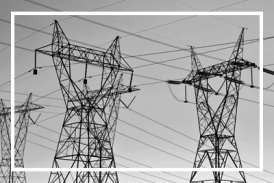European Integration Without Illusions: Brussels Expects Reforms from Ukraine, Not Slogans – Alona Lebedieva
The screening also touched on related chapters: “Transport Policy” and “Trans-European Networks,” where a more stringent dialogue on Ukrainian railways is expected in June. This is not about theoretical obligations, but about very practical matters – Ukraine’s participation in the multi-billion-euro infrastructure program Connecting Europe Facility, the possibility of attracting financing from the World Bank, and technical integration into the European network.
“Today, screening is an indicator not of formal compliance, but of real readiness to play by European rules. And the EU is sending a clear message: either you change – or you remain in the buffer zone,” says Alona Lebedieva, owner of the Ukrainian multi-profile industrial and investment group of companies “Aurum Group.”
The greatest concern in the EU was raised by the localization requirement in Draft Law No. 11520 on public procurement. According to the European Commission, this provision may contradict the principle of non-discrimination – one of the fundamentals of the European market. Kyiv’s arguments that this rule is temporary (valid until 2032) and limited in scope do not change the overall impression: Brussels is clearly signaling that such practices are incompatible with the model of open competition.
In Ukraine, however, this is viewed differently – not as a departure from the rules, but as an attempt to preserve industrial sovereignty during wartime.
“I fundamentally support localization,” says Alona Lebedieva. “We need to support our domestic producers. Without it, we risk losing entire sectors before we even get access to the European market. Localization is not a whim – it’s a survival strategy. If we leave Ukrainian manufacturers one-on-one with European giants, we’ll have nothing left to integrate.”
In her view, Ukraine’s task is not to blindly copy models created in completely different conditions, but to find a balanced solution:
“We need a flexible, adaptive system – one that allows integration into the EU without destroying our own industry.”
Despite the criticism, Brussels positively assessed the launch of the Centralized Procurement Organization, which is expected to implement the “price–quality” principle, taking into account not only cost, but also environmental, social, and innovative aspects. But even here there is an important caveat:
“We cannot create a transparent system if we simultaneously retain manual control and political exemptions. That’s like building a new house on an old foundation – the result will inevitably be unstable,” Lebedieva notes.
The coming months will be decisive, as the June screening of the transport block will not just be another negotiation stage, but a real test of Ukraine’s ability not just to make promises, but to deliver. Without concrete action, we risk losing access to funding already reserved by international partners – including more than $1.5 billion from the World Bank.
“Europe no longer buys into declarations. It wants to see decisions – legislative, institutional, infrastructural. And if we truly want to be part of the common space, we must act as equals – without bargaining for leniency,” Lebedieva concludes.
European integration is not about symbols or slogans – it’s about detailed work, consistent decision-making, and the ability to fulfill commitments at the pace set by the EU. If we genuinely want to be part of the European space, we must begin to act as equals – not plead for exceptions citing difficult conditions. Europe is tired of listening to explanations. It expects results.
Alona Lebedieva
Aurum Group
email us here
Legal Disclaimer:
EIN Presswire provides this news content "as is" without warranty of any kind. We do not accept any responsibility or liability for the accuracy, content, images, videos, licenses, completeness, legality, or reliability of the information contained in this article. If you have any complaints or copyright issues related to this article, kindly contact the author above.
Offshore wind could contribute more than $40 billion to Australia's GDP between 2027 and 2040
Top Talent Hollywood and The Big Festoon Unite Global Change-Makers
The Vancouver Club Graces the Cover of Folio.YVR Issue 34, Celebrating the Relevance & Appeal of Private Members’ Clubs
Kalendarium
Więcej ważnych informacji
 Jedynka Newserii
Jedynka Newserii

 Jedynka Newserii
Jedynka Newserii

Infrastruktura

Kolejne 9 mld zł trafi na budowę i modernizację sieci energetycznych. Inwestycje pomogą wyeliminować ryzyko blackoutu
Modernizacja i cyfryzacja sieci to dziś jeden z priorytetów spółek energetycznych w Polsce. Inwestycje te wzmacniają odporność systemu elektroenergetycznego i ograniczają ryzyko blackoutu, analogicznego do tego, który niedawno miał miejsce w Hiszpanii, ale też umożliwiają przyłączenie większej ilości zielonych źródeł energii. Enea pozyskała właśnie niskooprocentowaną pożyczkę w ramach KPO w wysokości 9 mld zł, które przeznaczy na budowę i modernizację sieci w północnej i zachodniej Polsce.
Rolnictwo
Gminne komisje szacują już straty w uprawach spowodowane przez majowe przymrozki. Najbardziej poszkodowani są sadownicy

W maju przygruntowe przymrozki pojawiły się na terenie niemal całego kraju. W niektórych miejscach temperatura obniżała się nawet do kilku stopni na minusie. Straty w rolnictwie i sadownictwie są bardzo duże, w niektórych regionach kraju sięgają nawet 90 proc. Ucierpiały nie tylko owoce i zboża, ale też część warzyw. Trwają już przygotowania naborów dla rolników, którzy ponieśli straty w wyniku przymrozków.
Polityka
Kampania prezydencka na ostatniej prostej. Temat ochrony zdrowia na drugim planie

Zdaniem przedstawicieli Naczelnej Izby Lekarskiej temat ochrony zdrowia w kampanii prezydenckiej, prowadzonej przed I turą wyborów, zszedł na dalszy plan. Kandydaci na najwyższy urząd w Polsce nie podawali – poza tematem składki zdrowotnej – w tym obszarze konkretów, a skupili się na kampanijnych ogólnikach i zapewnieniach. Zabrakło poruszenia wielu ważnych kwestii dotyczących m.in. przyszłości zawodów medycznych, kształcenia lekarzy, walki z agresją wobec medyków czy pomysłów na skrócenie kolejek do specjalistów i poprawy finansowania.
Partner serwisu
Szkolenia

Akademia Newserii
Akademia Newserii to projekt, w ramach którego najlepsi polscy dziennikarze biznesowi, giełdowi oraz lifestylowi, a także szkoleniowcy z wieloletnim doświadczeniem dzielą się swoją wiedzą nt. pracy z mediami.










.gif)

 |
| |
| |
|